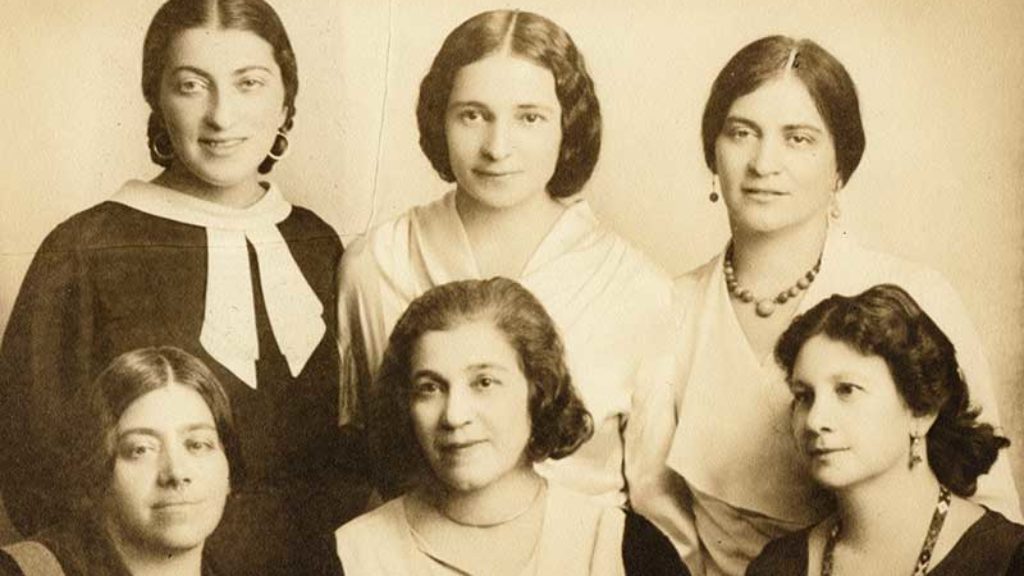Letters, Summer 2010
Rosenfeld and the Jewish Review of Books
Dara Horn’s article on Isaac Rosenfeld is, by itself, an auspicious beginning for your new magazine. Lucid and wise, it’s a wonderful essay. It is easy to despair of the careerism and problem solving that infuses today’s higher education, and for those of us who do, Ms. Horn’s first-rate piece restores a sense of perspective.
David Lebedoff
Minneapolis, MN
No Jewish Narnia
I enjoyed Michael Weingrad’s “Why There is No Jewish Narnia.” Rabbi Odeya Tzurieli has argued in a recent essay that Israeli hyper-realism and complete lack of imagination stem from Zionism’s idea of hagshama (realization), which strove to break with the Jewish tradition of dreaming about and aspiring for redemption and replace it with action and initiative. Zionism’s success had an unfortunate price.
I also know of at least one fantasy book written by a learned Orthodox rabbi, Erez Moshe Doron, called Lochamay Ha-temurot. (A weak English translation entitled Warriors of Transcendence is available in Israel.) Rabbi Doron is the former head of an Israeli parapsychology organization and is now a popular Bratslav rabbi, who follows Rabbi Nachman’s call to write fantasy (see Likutei Moharan #60).
Yeshaya Rosenman
Rehovot, Israel
I greatly enjoyed reading Professor Weingrad’s piece on fantasy, and, as a life-long fan and amateur student of Lewis, Tolkien, and the Inklings, I have to say that I think he nailed it.
The piece really takes its place alongside G.K. Chesterton’s “The Ethics of Elfland” and Tolkien’s own “On Faerie Stories” as one of the best explorations and explanations of the relationship among European pagan myths, Christianity (particularly Catholic and Anglo-Catholic Christianity), and “high” fantasy. But those pieces are about why there is Christian fantasy, not why there isn’t Jewish fantasy, or Jewish fantasy of the same sort, and I had never seen the latter question addressed—Professor Weingrad’s explanation, however, is compelling.
John F. Watkins
New York, NY
I thoroughly enjoyed Michael Weingrad’s article. However, Professor Weingrad may wish to read Neil Gaiman, who is Jewish and is also perhaps the most important fantasist writing today.
Dr. Robert T. Tally, Jr.
Department of English, Texas State University
Michael Weingrad Responds:
My essay on the nature of fantasy literature and its relationship to Judaism provoked an avalanche of responses, both positive and negative. I have replied at some length to my online critics on this magazine’s website. There I do acknowledge what Robert Tally, Jr. points out is the oversight of Neil Gaiman, though I continue to believe that Gaiman’s work reinforces my theological arguments even as it may challenge my sociological ones.
Yeshaya Rosenman’s letter indicates how much more there is to ponder on this topic. I am not convinced that Rabbi Nachman’s Sippurei Ma’asiyot should be categorized as modern fantasy, but I agree that a fuller treatment of the subject is needed. Finally, I am grateful to John Watkins for his high praise.
The Prayers of Others
In his review of the new Koren Sacks Siddur, Hillel Halkin seems to gaze almost wistfully across the street at the Catholics and the Protestants, with their once-a-week church attendance, and the Muslims, with their frequent but brief services. He appears to feel that our own lengthy liturgy is too clunky to foster feelings of devotion. But Halkin doesn’t seem to realize that even the ancients understood this, and that is why the primary prayer was and remains the amidah, the 18 blessings. All the rest is commentary, so to speak. If Halkin feels the other prayers detract from his concentration on the amidah, he should simply omit those auxiliary passages. In any event, I see no support for the idea that shorter services in other religions translate to better concentration. There is no shortage of lapsed Catholics and Protestants who can disabuse Halkin of that fanciful notion.
David Farkas
Cleveland, OH
Hillel Halkin Responds:
I can’t imagine what David Farkas found “wistful” about my very brief references to Catholic, Protestant, and Muslim prayer. Never having been a Catholic, Protestant, or Muslim, I have no idea what it is like to pray as one. As I thought I made clear, the only prayers I feel wistful for are the ones I grew up with, which are those of a traditional, Orthodox Jewish service. Those I sometimes miss.
When Conservative Judaism was Ascendant
Why did Rabbi Lance J. Sussman complely decline to mention the Conservative movement in his review of Dana Evan Kaplan’s Prospects for American Judaism? Particularly in the 1960s and 1970s, Conservative Judaism was in ascendancy. It wasn’t overshadowed until relatively recently by the Reform movement, at least in terms of adherents. It has been and continues to be a major presence in American Judaism. The omission, therefore, is glaring.
Aura Ahuvia
ALEPH Rabbinc Student
Ann Arbor, MI
Lance J. Sussman Responds:
The current situation of the Conservative movement is well known, and Dana Kaplan did a good job in his discussion of it. His account of Reform Judaism, by contrast, was inadequate as critical scholarship and required a strong response.
Weak Tea or Strong Coffee?
Azzan Yadin (whom I highly respect) believes I must have created The Commentators’
Bible because I thought “that not enough had been lost in previous translations.” Yes; that is exactly what I do think. And I can well understand if my English versions of the commentators are too diluted for his taste.
He is not the first scholar to view my project with a jaundiced eye. I would encourage those who share his opinion to realize that my purpose in translating the medieval commentators is not to have my readers study the commentators. It is to have them study Torah. What tastes like weak tea to my university colleagues is strong coffee to the Jews for whom I am writing.
If learning The Commentators’ Bible eventually takes some readers far enough on their intellectual
journey to share Yadin’s opinion, no one will be more delighted than I.
Michael Carasik
Philadelphia, PA
From Left and Right
Shmuel Rosner claims that Zertal and Eldar “pretend to write history while engaging in raw politics.” He then recites the chapter titles of the book to demonstrate how “angry” the authors really are. He then moves on to analyze, in a more subtle and appreciative way, books about settlers’ personal lives.
Lords of the Land is arguably the most comprehensive survey of the settlements published thus far. Rosner wishes to dismiss it as merely a polemic, but he does not engage a single argument in the book. Zertal and Eldar examine the corrupt relationship between the Army and the settlement movement, and also expose—in detail—the outrageous leniency of Israel’s High Court of Justice when dealing with settler, as opposed to Palestinian, crimes. To claim, as Rosner does, that a “mere glance at the titles of the book’s chapters gives one a sufficient sense of what’s inside” is totally inadequate.
Equally spurious is Rosner’s claim, later on in the review, that “it will be the Palestinians, and their ability to overcome their shortcomings, who will decide whether or not the West Bank remains under Israeli control.” As Zertal and Eldar’s book makes clear, the settlement enterprise was first established to create “facts on the ground,” “facts” that no Israeli government can possibly undo. If it is all up to the Palestinians, as Rosner suggests, perhaps he can explain why the Israeli government of Yitzhak Rabin allowed settlements to expand all throughout the period after the Oslo Accords? I would encourage readers to look at Zertal and Eldar’s book for themselves. Rosner might be offended by the “anger” of the authors, but it is nothing compared to the offense the settlement project has engendered against democratic Israel.
Matthew Phillips
New York, NY
Shmuel Rosner’s article leaves one with the impression that not only the authors of each book, but also Rosner himself, believe that the only Jews who live in Judea and Samaria are fervently religious Zionists. A closer look reveals a diverse population.
In Ariel, one of the oldest Jewish towns in Samaria, less than 20% of the population of about 20,000 is religious, according to Eldad Halachmi, Vice President of Development at Ariel University Center. In the towns of Nili, Tekoah, Beit Aryeh, Ma’ale Efraim, and Peduel the religious/secular ratio is about equal. In a recent BBC report, it was noted that 65% of Givat Ze’ev’s population of 12,000 is secular.
Leonard Getz
National Vice President, Zionist Organization of America
Lower Merion, PA
Shmuel Rosner Responds:
A book can be a “comprehensive survey” of facts and still be a “polemic.” Eldar and Zertal interpret the facts in ways that make the book, in my view, both “angry” and “political.” One example: They blame Ariel Sharon for the second Palestinian Intifada. This—to put it mildly—is a questionable claim. The comment regarding “facts on the ground” can be answered with this very brief reminder: September 2005, the Israeli pullout from the Gaza Strip.
Factually, Mr. Getz is right, of course. However, the settlement movement was and still is a religious Zionist (according to some, post-Zionist) phenomenon. Most of the people who actively promote the policy of settlement are religious Zionists.
Suggested Reading

Funny How a Poem Can Get Under Your Skin
On Celia Dropkin’s avant-garde Yiddish break-up poem and a political insight.
Gut Shabbes
Upmanship & Downmanship

Shas: The Movie
If you think this Israeli election is raucous, travel back to 1984 and Shas's arrival on the political scene in the film The Unorthodox.
Emancipation and Its Discontents
How a small, marginal community of Moravian Jews grappled with the challenges modernization and secularization brought to European Jewry.
Comments
You must log in to comment Log In